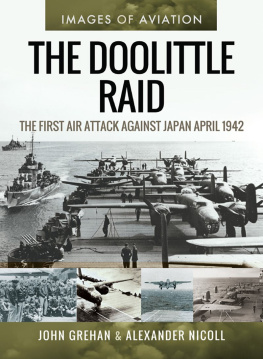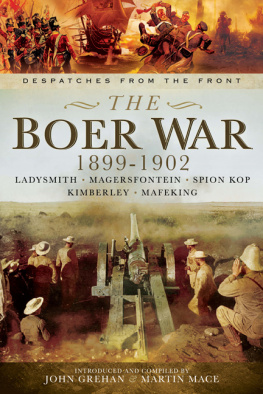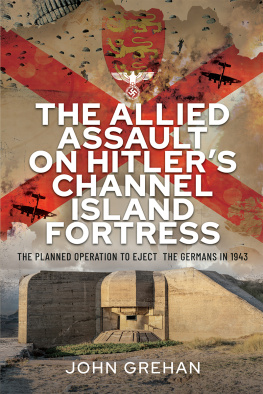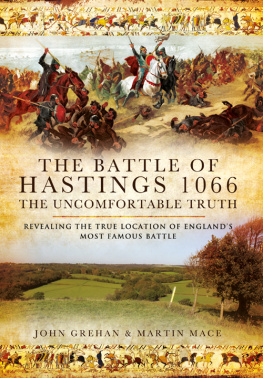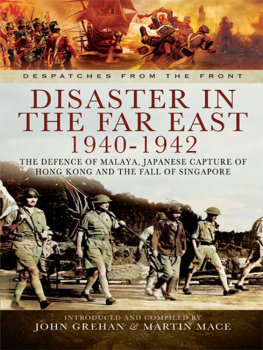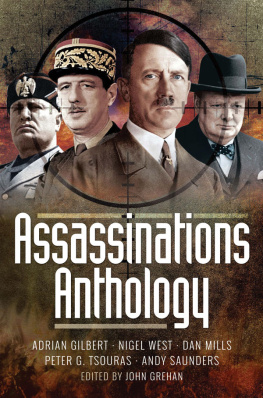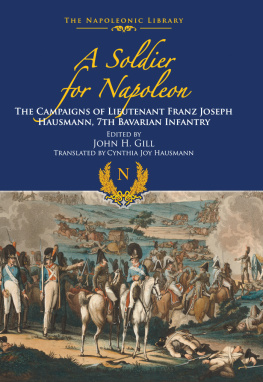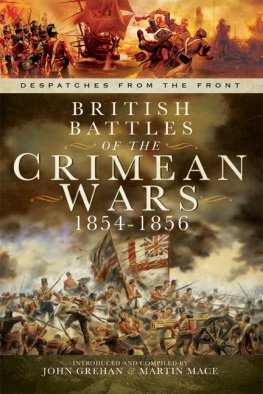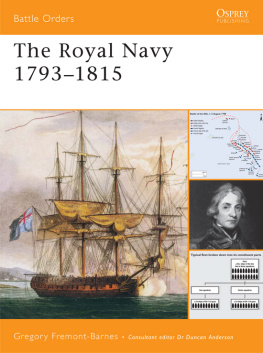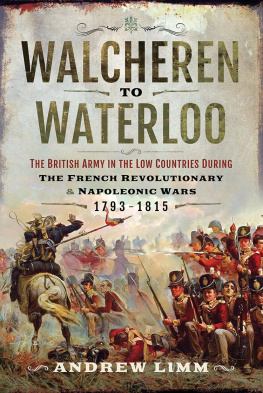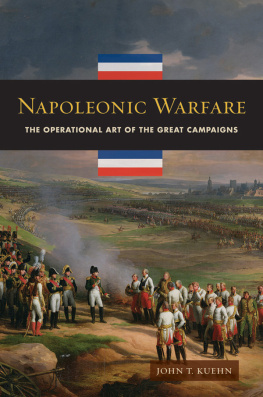First published in Great Britain in 2013 by
Pen & Sword Military
an imprint of
Pen & Sword Books Ltd
47 Church Street
Barnsley
South Yorkshire
S70 2AS
Copyright John Grehan and Martin Mace, 2013
ISBN 978 1 78159 3 325
eISBN 9781473831421
The right of John Grehan and Martin Mace be identified as Authors of this Work has been asserted by them in accordance with the Copyright, Designs and Patents Act 1988.
A CIP catalogue record for this book is available from the British Library. All rights reserved. No part of this book may be reproduced or transmitted in any form or by any means, electronic or mechanical including photocopying, recording or by any information storage and retrieval system, without permission from the Publisher in writing.
Printed and bound in England by CPI
Pen & Sword Books Ltd incorporates the Imprints of Pen & Sword Aviation, Pen & Sword Maritime, Pen & Sword Military, Wharncliffe Local History, Pen and Sword Select, Pen and Sword Military Classics and Leo Cooper.
For a complete list of Pen & Sword titles please contact:
PEN & SWORD BOOKS LIMITED
47 Church Street, Barnsley, South Yorkshire, S70 2AS, England
E-mail: enquiries@pen-and-sword.co.uk
Website: www.pen-and-sword.co.uk
INTRODUCTION
It is the job of the historian not only to assemble facts and present them to their public but also to interpret those facts. Much is lost and gained in such interpretations, everything being dependent upon the inclination of the author. That each new book on any subject can claim to be different from those that preceded it is ample proof of this.
Where then lies the truth? Which interpretation shall be judged the correct one? All will have their merits either in accuracy, detail or brevity. But only one account will be authentic that delivered by the man who witnessed the events in person.
Battles, however, are notoriously difficult to describe, the individual solder being able to see little beyond his immediate vicinity. Only the most senior officers can have a holistic view of the unfolding events and their possible short-term consequences. It is to those persons that we must turn.
Until the Great War of 19141918, the Napoleonic Wars were the most described conflict in history. Since then the outpouring of books has scarcely diminished. These works have been histories, memoirs and biographies, all written after the event. All have been written in the knowledge of what happened next. All coloured by hindsight. All subject to interpretation.
So what are presented in this volume are the reports from the commanding officers in the field or at sea, taken directly from the original despatches. In the main they were written on the day, or the days immediately following the battle in question. Often they represented the first knowledge the British people had of the battle or its outcome.
Some of these are comparatively brief accounts of the battle just won or lost. Others, particularly those conducted many hundreds, or even thousands, of miles away, are comprehensive reports detailing the entire campaign, from its commencement to the final, decisive battle. They are reproduced here as they were 200 years ago.
Some place names were spelt differently in the eighteenth and nineteenth centuries and we have retained the original spellings. We have not corrected the original text for spelling errors or grammatical blunders. What is written here is what was reproduced either in the despatch itself or the copy published in the relevant issue of The London Gazette.
Readers will therefore note considerable differences between the grammar and spelling of Georgian times and the present day. For instance, that which today we consider to be the American way of spelling honour, i.e. without the u, was in fact how it was spelt in Britain in the late eighteenth and early nineteenth centuries, though this changed towards the end of the period in question to the modern spelling. It was also the case with favour/favor, though there was no consistency in the use of either of these words. Readers will also see that increase was encrease and many other unfamiliar spellings can be spotted throughout the various despatches; chase, for instance, is often chace.
The seemingly arbitrary use of capital letters has been retained as has the very individualistic style of writing displayed by some officers. It would seem that all nouns, not just proper nouns, began with a capital, as did numbers when they were written in words. It must be stressed, however, that there is little consistency and these observations should not be regarded as standard rules, and towards the end of this period this use of such capital letters fell out of practice. This caveat includes the use of hyphens in military ranks. Even in the same despatch, Major Generals, Brigadier-Generals, etc. can be both hyphenated and non-hyphenated. Some names also, it will be noticed, are occasionally spelt differently in the same despatch.
Anyone that chances to read the original printed documents of this era will note the apparent use of the letter f in place of the letter s. This letter is in fact not an f but an elongated s which has its origin in the days before the printing press when hand-written script was highly elaborate. When the printing press came into being the printers of the day adopted the most popular scripts of the day, which included the elongated s.
Finally, we must acknowledge that transcribing such a large amount of text from documents that are 200 years or more old can sometimes be challenging. Whilst every effort has been directed towards complete accuracy, it is not impossible that, in the reading of faded print, errors have been made.
Most of these reports included a list of the casualties incurred in the battle. These, and most references to them, have not been included in the despatches in this book. This is because they would make for very uninspiring reading and would make the book unacceptably bulky. For the same reason, where articles of capitulation and details of stores seized during successful assaults are listed, these also have been omitted, as well as some enclosures relating to other aspects of particular engagements.
This book makes no attempt at providing a comprehensive history of the British military involvement in the French Revolutionary wars or the early First Empire period. Its sole object is to present the despatches of the commanding officers. We have not attempted to include every action involving Britains armed forces during this era. The remit of the book is to provide the reports of large-scale engagements from senior officers exercising independent commands. In some instances, where the engagements were combined operations involving both the Army and the Navy, separate reports were submitted by both the naval and military commanders. Where these are available or appropriate they have been included.
What are presented here, therefore, are the only genuinely authentic and comprehensive accounts of these, often momentous, military and naval actions, unsullied by retrospection or by subsequent personal bias.
This then is our assembly of facts, raw and untainted. Their interpretation is yours alone.
John Grehan and Martin Mace
Storrington, 2013




